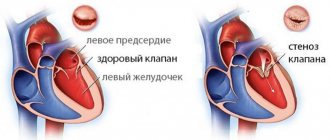Description of tablets "Concor"
"Concor" is a medication that is used to treat low blood pressure, sore throat, and also to normalize heart rhythm. The active ingredient is 2 compounds:
- Bisoprolol fumarate.
- Bisoprolol hemifumarate.
Available in the form of tablets, each of which contains 5 or 10 mg of the main component. Dispensed in pharmacies only with a prescription. Can be stored under normal conditions (at a temperature not exceeding 30 degrees) for the total shelf life (5 years from the date of production).
Contraindications
In some cases, taking the drug is prohibited:
- exacerbation of heart failure;
- a sharp decrease in pressure;
- cardiogenic shock;
- acidosis;
- intolerance to individual components, allergic reactions;
- bronchial asthma;
- blockade (sinoatrial and AV type).
The product is indicated for use only in adult patients. Children under the age of 17 inclusive are prohibited from using Concor. In this case, the pediatrician must develop a different course of therapy.
Attention!
Taking the product during pregnancy and breastfeeding (at any stage) is allowed, but with caution. There are no reported cases of complications, but therapy should be agreed with a doctor.
Special instructions for the use of the drug Concor
In some cases, β-adrenergic receptor blockers (for example, Concor when taken at a dose of 10 mg) can cause psoriasis vulgaris, worsen the course of this disease, or lead to a skin rash similar to psoriasis. When treating hypertension (arterial hypertension) with this drug, regular medical monitoring of the patient's condition is necessary. There are no clinical data on the effectiveness and safety of using Concor for the treatment of children. Use during pregnancy and lactation. Concor should not be used during pregnancy and breastfeeding due to the lack of reliable clinical data confirming the safety of the drug. In exceptional cases, therapy with Concor during this period should be discontinued 72 hours before the expected due date due to the possibility of bradycardia, hypoglycemia and respiratory depression of the newborn. If discontinuation of the drug is not possible, then after birth the newborn should be closely monitored. Symptoms of hypoglycemia can be expected during the first 3 days. Experimental studies did not reveal any disturbances in reproductive function or changes in the offspring. Due to the individual nature of reactions to the drug, the ability to drive vehicles or operate machinery may be reduced. To a greater extent, this applies to the initial stage of treatment and changes in the dose of the drug, as well as with the simultaneous use of alcohol.
Side effects
Side effects are rare, but they are not excluded:
- cramps, muscle weakness;
- bronchial asthma (exacerbation);
- sleep disorders;
- depressive states;
- headaches;
- dizziness;
- rarely – loss of consciousness;
- conjunctivitis;
- nausea;
- diarrhea;
- problems with potency;
- allergic reactions (itching, rashes, rhinitis of allergic origin).
Side effects of the drug Concor
From the side of the central nervous system: increased fatigue, dizziness, headache, sleep disturbance, depression may be observed (especially at the beginning of therapy), rarely - hallucinations (usually mild and passing within 1-2 weeks), sometimes - paresthesia. On the part of the organ of vision: blurred vision, decreased tear production (must be taken into account when wearing contact lenses), conjunctivitis. From the cardiovascular system: in some cases - orthostatic hypotension, bradycardia, impaired AV conduction, decompensation of heart failure with the development of peripheral edema, at the beginning of treatment - deterioration of the patient's condition with intermittent claudication or Raynaud's syndrome. From the respiratory system: isolated cases - shortness of breath (in patients with a tendency to bronchospasm). From the gastrointestinal tract: in some cases - diarrhea, constipation, nausea, abdominal pain, increased activity of liver enzymes in the blood plasma (ALAT, AST), hepatitis. From the musculoskeletal system: in some cases - muscle weakness, cramps, arthropathy affecting one or more joints (mono- or polyarthritis). From the endocrine system: decreased glucose tolerance (with latent diabetes mellitus) and masked signs of hypoglycemia, in some cases - increased blood TG levels, impaired potency. Skin: dermatological reactions: sometimes - itching, skin flushing, increased sweating, skin rash.
Instructions for use of "Concor" tablets
The drug is started with a small dose - 5 mg per day. If necessary, it can be increased to 10 mg. If the patient suffers from high blood pressure or angina pectoris, a maximum amount of 20 mg per day can be taken. In case of chronic heart failure (without acute periods) – 10 mg.
"Concor" is taken as a primary or additional means. It is often used in conjunction with blockers of diuretics, cardiac glycosides, and ACE inhibitors. The course of treatment is long until the desired effect is achieved. Specific terms are not specified in the instructions, so the patient should consult a doctor before starting treatment.
Important!
During treatment, alcohol intake is completely contraindicated. If possible, you should reduce or quit smoking. In consultation with your doctor, you need to follow a certain diet.
Concor®
Termination of therapy and “withdrawal syndrome”
You should not abruptly interrupt treatment with bisoprolol or change the recommended dose without first consulting your doctor, as this may lead to a temporary deterioration in heart function.
Treatment should not be interrupted suddenly, especially in patients with coronary artery disease (worsening attacks of angina pectoris, the development of myocardial infarction and the occurrence of ventricular arrhythmias in patients with coronary artery disease have been noted when taking beta-blockers suddenly). If discontinuation of treatment is necessary, the dose of bisoprolol should be reduced gradually. In case of significant worsening of angina or development of acute coronary syndrome, bisoprolol should be temporarily resumed.
Diseases for which the drug should be used with caution
Bisoprolol should be used with caution in the following cases:
- severe forms of COPD and non-severe forms of bronchial asthma;
- diabetes mellitus with significant fluctuations in blood glucose concentrations: bisoprolol may mask symptoms of hypoglycemia (a marked decrease in blood glucose concentrations), such as tachycardia, palpitations or increased sweating;
- strict diet;
— carrying out desensitizing therapy;
— atrioventricular block of the first degree;
- vasospastic angina (Prinzmetal's angina); cases of coronary spasm have been observed. Despite its high beta1 selectivity, angina attacks cannot be completely excluded when taking bisoprolol in patients with Prinzmetal's angina. You should take the drug with extreme caution;
- mild to moderate peripheral arterial circulation disorders (increased symptoms may occur at the beginning of therapy);
- psoriasis (including history).
Diseases of the cardiovascular system
Beta blockers should not be used in decompensated chronic heart failure until the patient's condition has stabilized.
At the initial stages of using bisoprolol, patients need constant monitoring.
Beta blockers may cause bradycardia. If the resting heart rate decreases to less than 50-55 beats/min, the dose should be reduced or discontinued taking bisoprolol.
Like other beta blockers, bisoprolol may cause a prolongation of the PQ interval on the ECG. Bisoprolol should be used with caution in patients with first degree atrioventricular block.
Non-selective beta-blockers may increase the frequency and duration of anginal attacks in patients with vasospastic angina (Prinzmetal's angina) due to alpha-receptor-mediated coronary artery vasoconstriction.
Cardioselective beta-blockers (including bisoprolol) should be used with caution in vasospastic angina.
To date, there is insufficient data regarding the use of bisoprolol in patients with CHF in combination with type 1 diabetes mellitus, severe renal and/or liver dysfunction, restrictive cardiomyopathy, congenital heart defects or heart valve disease with severe hemodynamic disturbances. Also, sufficient data have not yet been obtained regarding patients with CHF with myocardial infarction within the last 3 months.
Respiratory system
Despite the fact that selective beta-blockers have a lesser effect on the function of the respiratory system than non-selective beta-blockers, patients with chronic obstructive pulmonary disease COPD and mild forms of bronchial asthma should be prescribed bisoprolol with extreme caution and only if possible the benefits of its use outweigh the potential risks.
For bronchial asthma or COPD, simultaneous use of bronchodilators is indicated. In patients with bronchial asthma, there may be an increase in airway resistance, which requires a higher dose of beta2-agonists.
In patients with COPD, bisoprolol prescribed in combination therapy for the treatment of heart failure should be started at the lowest possible dose, and patients should be carefully monitored for the appearance of new symptoms (eg, shortness of breath, exercise intolerance, cough).
Major surgery and general anesthesia
If surgical interventions are necessary, the anesthesiologist should be warned that the patient is taking beta-blockers (risk of drug interactions with the development of severe bradyarrhythmias, reduction of reflex tachycardia and arterial hypotension). It is recommended not to stop taking bisoprolol in the perioperative period unless clearly necessary (since beta-adrenergic receptor blockade reduces the risk of arrhythmias and myocardial ischemia during induction of anesthesia and tracheal intubation).
If it is necessary to interrupt treatment with bisoprolol before surgery, the drug should be discontinued at least 48 hours before surgery.
Pheochromocytoma
In patients with pheochromocytoma, bisoprolol can only be prescribed while using alpha-blockers.
Thyrotoxicosis
With hyperthyroidism, beta-blockers (including bisoprolol) can mask tachycardia and reduce the severity of symptoms of thyrotoxicosis. Abrupt withdrawal of the drug can cause exacerbation of symptoms of the disease and the development of thyrotoxic crisis.
Hypersensitivity reactions
Beta blockers, including bisoprolol, may increase sensitivity to allergens and the severity of anaphylactic/hypersensitivity reactions due to decreased adrenergic compensatory regulation by beta blockers. The use of usual therapeutic doses of epinephrine (adrenaline) while taking beta-blockers does not always lead to achieving the desired clinical effect.
Caution should be exercised when prescribing bisoprolol to patients with a history of severe hypersensitivity reactions or undergoing desensitization.
Psoriasis
When deciding on the use of bisoprolol in patients with psoriasis, the expected benefits of the drug should be carefully weighed against the possible risk of exacerbation of psoriasis.
Contact lenses
Patients who use contact lenses should take into account that the use of beta-blockers may reduce the production of tear fluid.
Cases of overdose
In case of overdose, there is a severe drop in blood pressure and other dangerous consequences:
- exacerbation of heart failure;
- hypoglycemia;
- bronchospasm;
- AV block;
- bradycardia.
Treatment is symptomatic, depending on the nature of the exacerbation. For example, to relieve the symptoms of bradycardia, atropine is administered, and in case of glycemia, a glucose solution is administered. If bronchospasm is observed, it is treated with Aminophylline. In case of a serious condition, it is necessary to call emergency assistance as quickly as possible.
Drug interactions
The drug is not recommended to be combined with medications such as Bisopropol. It leads to a decrease in the conductivity and contractility of the heart, which can lead to bradycardia. In turn, this will lead to vasodilation.
With caution, Concor is combined with drugs based on amiodarone and parasympathomimetic agents. If you use hypoglycemic drugs, their effect will increase. If used together with cardiac glycosides, symptoms of bradycardia will appear.
Parallel use of adrenergic agonists leads to an increase in blood pressure. If you use Mefloquine at the same time, this will again cause symptoms of bradycardia.
Concor - treatment of arterial hypertension and heart rhythm disturbances
Concor is an effective drug for the treatment of diseases of the cardiovascular system.
Treatment of diseases of the cardiovascular system is a big problem. For many conditions, precise selection of drug dosages is required. Therefore, a drug that is convenient for the patient to prescribe and take is very important. Such a drug includes Concor or bisoprolol.
There are receptors in the heart and blood vessels that, when influenced, cause various effects, such as increased heart rate, increased or decreased blood pressure, and others. Concor is a selective beta1-blocker. This type of receptor is located in the heart. If this type of receptor is stimulated, heart rate increases, and the force of contraction also increases, which leads to an increase in the need for nutrients and oxygen in various tissues, in particular the myocardium. In addition, blood pressure increases.
With heart disease, patients experience an increase in blood pressure and an increase in heart rate. A special feature of Concor is its selective blockade of this type of receptor. That is, the drug acts exclusively on beta 1 receptors, without affecting other receptors.
The drug is available in two dosages: 5 and 10 mg. Bisoprolol is synthesized in the form of tablets; there is also an intravenous form, but it is used exclusively in a hospital to obtain a quick effect.
By blocking beta 1 receptors, Concor has:
- hypotensive effect - reduces blood pressure,
- antiarrhythmic - eliminates certain types of rhythm disturbances,
- antianginal - the main mechanism is associated with a decrease in the myocardium's need for oxygen, which is accompanied by improved blood supply, dilation of the blood vessels of the heart, this also leads to a decrease in pain in the heart area.
This drug, unlike others in this group, does not have its own sympathomimetic activity. This means that it only blocks the receptors without causing them to be stimulated at the same time. In addition, it slightly stimulates beta 2 adrenergic receptors without causing significant effects. Beta 2 receptors are located mainly in the bronchi, and when stimulated, they can affect the bronchi, causing many side effects.
Already 3 hours after absorption, the drug has its maximum effect. In some conditions, it is enough to prescribe the drug once, and the effect lasts throughout the day. When analyzing blood pressure after administration of the drug, the greatest effect is observed at the end of the second week of taking the drug.
90% of the active substance of the drug is absorbed into the blood after oral administration. Food and water do not affect the amount of drug absorption.
The main metabolic pathway of concor is oxidative. All metabolites formed in this process are excreted through the kidneys. At the same time, the formed substances are inactive.
Various experiments have shown that CYP3A4 (most of the drug) and CYP2D6 are involved in inactivation.
Concor is prescribed for high blood pressure, myocardial ischemia (stable angina), as well as long-term heart failure. Since this drug is prescribed only by a doctor, he takes into account the patient’s contraindications.
The main contraindications for use are decompensated conditions of cardiovascular diseases: acute heart failure, cardiogenic shock, severe life-threatening arrhythmias (AV block, sick sinus syndrome, sinoatrial block). In addition, given the possible effect on other adrenergic receptors in severe bronchial asthma, Concor is also contraindicated.
In addition to contraindications, it is necessary to remember that Concor can affect many chronic diseases, such as diabetes mellitus, kidney and liver dysfunction, psoriasis, structural disorders of the heart (cardiomyopathy, heart defects).
When taking Concor during pregnancy, you must remember that it affects the blood supply to the placenta, which can cause various pathologies in the fetus. Concor should not be taken while breastfeeding.
Taking the drug can cause various side effects. The most common effects include dizziness, fatigue, and hearing problems. The most pronounced effects are on the functioning of the heart and blood vessels: a decrease in heart rate. If the patient had signs of chronic heart failure, then its manifestations may worsen. In addition, vomiting, nausea, and muscle weakness may occur.
Considering that the treatment of cardiovascular diseases is complex and the patient needs to take a fairly large number of medications, the attending physician must know with which medications Concor can be taken. Particular caution should be taken when taking the medicine with all other antiarrhythmics, medications that affect the functioning of the heart and blood vessels, since their effect can be additive and lead to worsening arrhythmias and an excessive decrease in blood pressure. Also, we must not forget about abrupt withdrawal of the drug. In this case, severe rebound arterial hypotension may occur.
The drug is usually taken in the morning or once during the day. The dosage of the drug is determined only by the attending physician, who will prescribe the medicine based on clinical data and laboratory tests. Most often, the drug is prescribed with 5 mg 1 time. Next, you need to assess the level of blood pressure reduction and, if necessary, increase the dosage. For concomitant diseases of the heart and blood vessels, the dose of the drug can be further reduced to 1.25 mg with a subsequent increase in dosage. Usually the dose is increased once a week.
In some cases, it will be necessary to adjust the doses of other medications. Most often, concor is prescribed for a long period.
If the dose of the drug is chosen incorrectly, signs of overdose may occur. Usually they will manifest themselves as disturbances in the functioning of the heart.
In this case, treatment will be carried out symptomatically, that is, depending on the individual symptoms. If a sharp and marked decrease in heart rate is observed, atropine may be required. With a pronounced decrease in blood pressure, the administration of various solutions or drugs that constrict blood vessels is required.
Only a doctor can change the dosage, since if the dosage is incorrect, the condition may worsen.
Thus, Concor is the optimal remedy in the fight against various diseases of the heart and blood vessels, having a selective effect on their receptors.
concorrection of arterial hypertension and treatment of cardiac arrhythmias
special instructions
In some cases, there are no direct contraindications to the use of Concor. However, it should be taken with caution if you have the following disorders:
- following a strict diet (for example, after surgery, to correct weight);
- psoriasis;
- diabetes mellitus (if its course is accompanied by hypoglycemia);
- Prinzmetal's angina;
- AV block (first degree).




